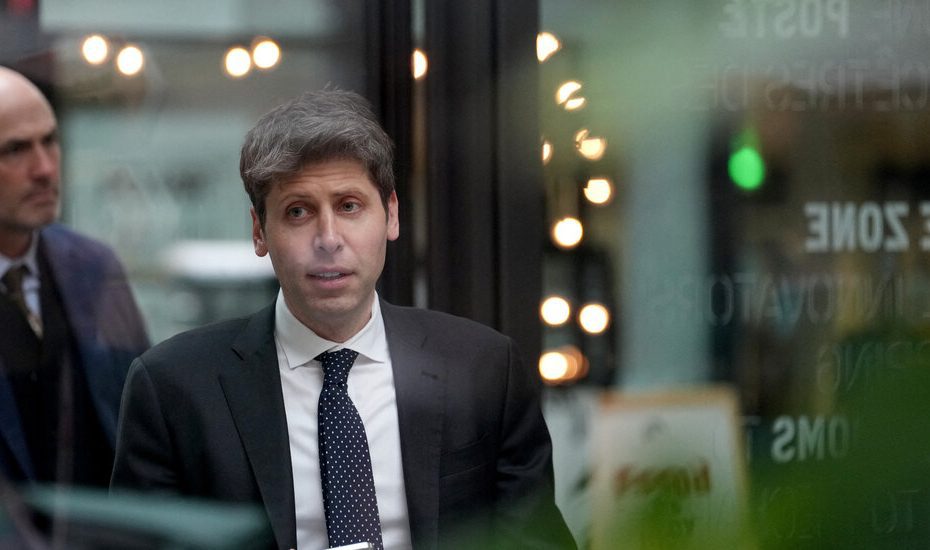The Board of Directors of OpenAI on Wednesday doubted the reason for an $ 97.4 billion offer from Elon Musk and others to get control of the high -profile artificial intelligence company.
On Monday, a consortium of investors led by Mr. Musk offered to buy the assets of the non -profit organization that checks the company, a year of fighting between Mr. Musk and the CEO of OpenAi, Sam Altman.
In a court application on Wednesday, the company said that Mr. Musk's offer contradicted legal claims that the billionaire submitted in a lawsuit that he submitted against OpenAi last year. In his submission, OpenAi argued that Mr. Musk said in his lawsuit that the assets should stay with the non -profit and could not be transferred to another entity to the public gain.
The company essentially accuses Mr Musk of Hypocrisis. In his lawsuit he claimed that OpenAi should be controlled by the non -profit. Now, OpenAi claims, he argues about the opposite.
The OpenAI board has not yet formally rejected the bid.
Marc Toberoff, a lawyer in Los Angeles who has filed the lawsuit against OpenAi on behalf of Mr. Musk, said on Wednesday in a statement to the New York Times: “The lawsuit is not about who OpenAi checks. It is about the misconduct of Sam Altman and OpenAi. “
If the OpenAI board is “willing to determine the 'for sale' signing of the assets of the charity in his so-called 'conversion', Musk will withdraw his bid,” Mr Terberoff added, referring to The efforts of OpenAI to break itself from the non -profit control. “But of course OpenAi will never do that.”
Mr. Musk's consortium would still complicate Mr. Musk's efforts to separate the company from the non -profit organization and still complicate the billions of dollars that OpenAi needs.
For more than a year, Mr Altman and his colleagues have been working on a plan to move the control of the company from the non -profit organization to OpenAI's Investors, including Microsoft and the Thrive Capital investment firm.
OpenAi has negotiated a fundraising of $ 40 billion, led by the Japanese conglomerate Softbank. The new fundraising round values opened $ 300 billion, according to three people with knowledge of the deal who spoke about the condition of anonymity.
The unusual business structure of the San Francisco company offered Mr. Musk an opening to interfere in that plan and make the make -up OpenAi more expensive.
To separate separately from the non -profit organization, Mr Altman and his colleagues must offer compensation. OpenAI can pay the non-profit a one-off reimbursement, for example, or give a minority stake in the company.
However, the assets of the non -profit organization have not received any value. Mr. Musk tries to set one, and his offer can mean that OpenAi's for-profit arm should spend more to gain independence from the old non-profit.
The clock is ticking for OpenAi to change how it works. According to the conditions of the last investment round of OpenAI, it must be controlling the company's control in less than two years away from the non -profit. Otherwise the financing will convert the debts into debts, according to documents that are assessed by the New York Times.
(The Times has sued OpenAi and Microsoft and claims infringement of the copyright of news content with regard to AI systems. The two companies have denied the claims of the suit.)
Mr. Musk's aggressive move is the last in a very personal fight with Mr Altman, who started 10 years ago as a partnership. They were part of the group that Opai founded as a non -profit in 2015 and said they wanted to share their technologies freely with the world.
When Mr. Musk left the organization three years later after a battle for control, Mr Altman OpenAi confirmed to a company with a profit motive, so that he could raise the enormous amounts of money that are needed to build AI technologies.
At the end of 2023, the non -profit organization suddenly dismissed Mr Altman and said that it no longer trusted him to build AI for humanity -one of the original principles of the non -profit.
He returned to the company in just five days and began to stack the board with his allies, while he explored ways to break the control of the non -profit. If they break the control of the non -profit organizations, Mr. Altman and his allies believed that OpenAi would be more attractive to investors.
Before the offer that became public on Monday, Mr. Musk also moved to block the changes in the management structure of OpenAi with a lawsuit that was brought to the federal court last year.

